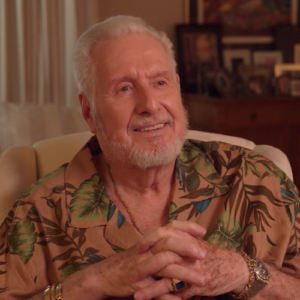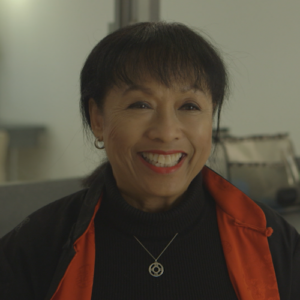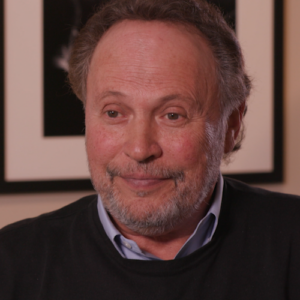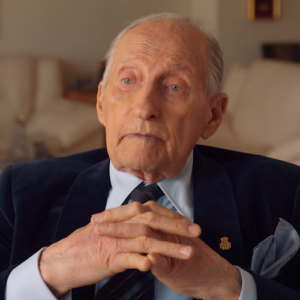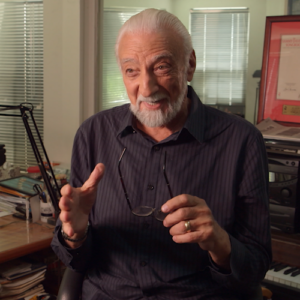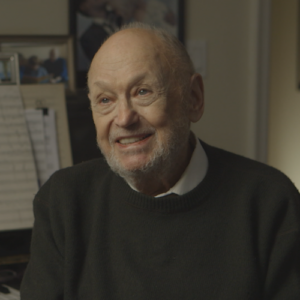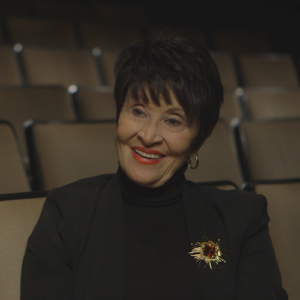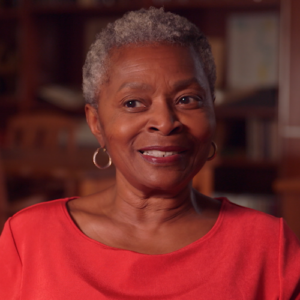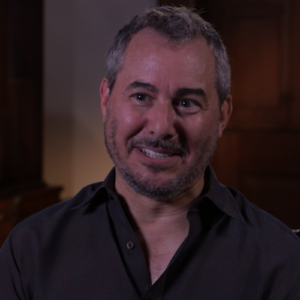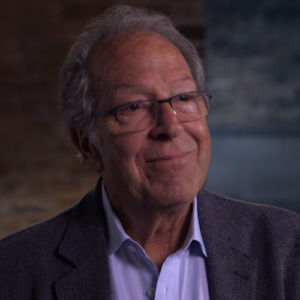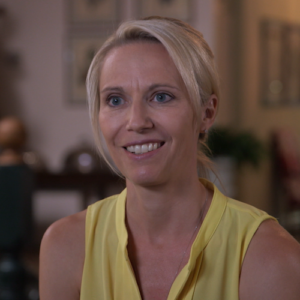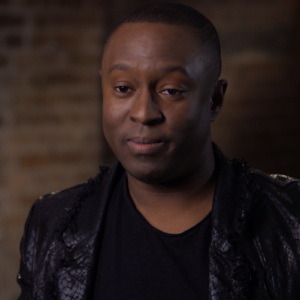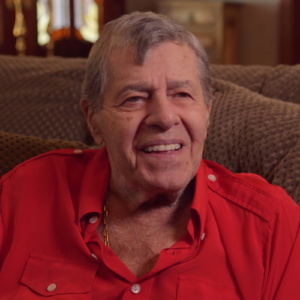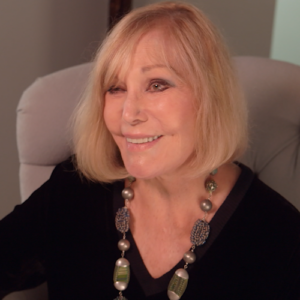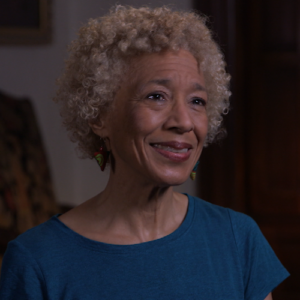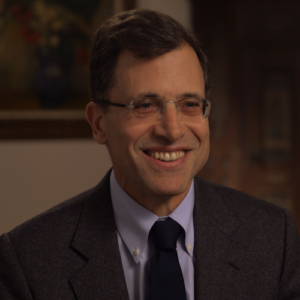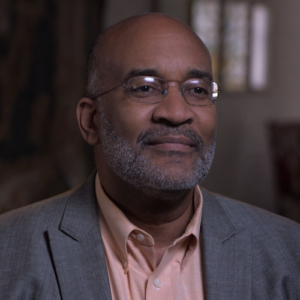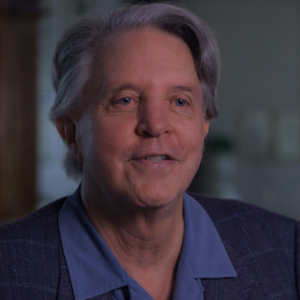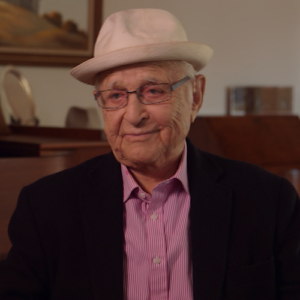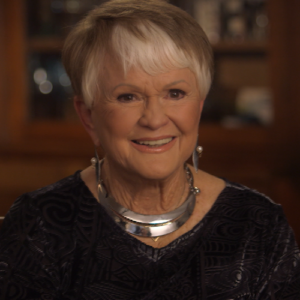Interviewer: Well, thank you for consenting to do the interview.
Bob Brown: Thank you for inviting me.
Interviewer: First question is, what was your awareness of Sammy Davis Jr before he got involved with the Nixon and Nixon in the streets?
Bob Brown: Well, I had been to a couple of his shows. I had been a couple of Sammy shows. I saw his show at the Copa with his father and uncle. The Wheel met some trio and they were absolutely off the charts. They were fantastic. And so I knew him from then. I knew him from different things that I had seen him different ways, different programs that I’d seen him involved with. And and during the years that I was working close to him, I came Junior Sammy came down and helped with rallies to raise money for the civil rights movement. And he was just a very dedicated person.
Interviewer: So you guys had some exchange during that time?
Bob Brown: No, not really. I just met him briefly, but I didn’t know him. He didn’t really know me. So I just you know, he kept it that way. I mean, I was just I was just an all Sammy and his talent, the kind of person he was.
Interviewer: So did you think of him as a performer?
Bob Brown: He was one of the world’s greatest performers ever. He could turn the place upside down and sideways. I mean, he was brilliant. He was absolutely brilliant. So I saw him perform so many times, and I never tired of him performing. My late wife and I would go to Vegas, to Tahoe, Reno, all over New York here to see him. And we would always want to see him. In fact, he would invite us to Vegas to see him and just be there with him for three or four days. And we would fly out and every night we would go to Sammy’s shows. And so one night, Sammy called us in before we were to go out to the shows. He told Shirley Rose, who was in Manager Get Bob and Sally Brown, and he talked. It was good. So we went back there and his dressing room and he said, You are not coming to my show tonight. So you’ve been here. You’ve been coming to my shows every night. He said, Frank Sinatra is here is a whole group of top entertainers. You need to go see some of them. And I’m going to set it up. I’m up. Call and set it up. You have a front row seat at one of frank shows and some other people. And my wife spoke up and she said, Sammy, we came out here to see you. And she said, The more we see you tomorrow, we love you and the more we love the way you entertain us, you know? And she said, you just absolutely brilliant in every way. And she said, We want to see you. And she said, we may go out and see one of these other people before we leave, but we want to be here every night. We write what we want to be.
Interviewer: That’s sweet. That’s nice. Let’s go. So, Mr. Brown, tell us how you became ended up becoming a special assistant to President Richard Nixon in 1968.
Bob Brown: Well, I had been involved with the civil rights movement. I worked very closely with Martin Luther King Junior ceremonies, board and executive committee travel with him. He became close friend. And then I got involved with Bobby Kennedy later on when when Dr. King was killed and when he was killed with Mrs. King pick up his body in Memphis. And then I got involved with the Bobby Kennedy campaign, and then Bobby Kennedy was killed. And after that, I was devastated. I mean, I was totally between, you know, in a matter of a few months and weeks. Two great leaders were killed. And I’m involved with both of them. And I said, I don’t want to do this anymore. So one day I’m in New York on business and I went to New York many times to go in business. And I ran into two friends of mine from the Republican National Committee who work for Ray Bliss, who was the national chairman. And one of them was claims. He was the assistant to replace he was a black man from Richmond, Virginia. And they he and Ted Brown asked me, look, we need you. We want to talk to you about working with the Republicans. I said, I’m a Democrat. They said, Oh, we know that. And you don’t have to change your registration, but we need your expertise, your brain and everything. And if you just talk with it, just talk with Bob. So we went out to lunch and that lasted three or 4 hours. And I ended up telling him I worked with him for two days a week. The first week it was five days, and the next minute from the end of the campaign, it was every day. One thing led to another and another and another. And I was assigned to to deal with a real critical problem in the campaign. Mr. Nixon wanted to go to a big rally in Rochester, New York, where Mr. Humphrey had been week before. Mr. Humphrey was was literally run out of of of Rochester. He had to get back on his plane because he couldn’t get into town. They wouldn’t let him through to demonstrate it. And so Mr. Nixon was to be there five or six days later and he didn’t want that to happen to him. So they sent me up there to be a mediator and to see if I could work that out. I went to Rochester and I met with all of the key people there and the people in the street, civil rights people in the others, and worked out a situation where they would not block Mr. Nixon from coming into town. It was still had the banners and everything. He came into town, had his big rally, which was hugely successful, and went back to the airport. And on his way back to the airport, he asked Mr. Finch, who was his campaign manager and lieutenant governor of California, who opened this door. He how did I get in? And Humphrey couldn’t get in, you know, And, you know, everybody spoke to me and to Nixon, particularly in the minority community. How could I get in? And they said, well, we have a guy who’s working with us by name of Bob Brown, and he worked it all out. And so Mr. Nixon told him at that time, I want you to find him wherever he is, and I want him to travel with me on a plane everywhere I go until the end of this campaign, which is what I did, a travel plane with him, work with a lot of the top press. It was traveling with him and worked out different problems in different communities where he would have to go and raise money. I knew a lot of industrialists around the country and I’d pick up 20, 30, $40,000 checks me, and I’d call people are going to count on you, and I’d say, I’m working for Mr. Nixon. He’s going to be president. So I’m calling, you know, some money. And they would have somebody come down and meet me and give me a check. So it was a big thing because nobody could understand how this black guy who is on the team.
Interviewer: Here.
Bob Brown: Is coming up with all this money from different people. And so I did that and I traveled with Mr. Nixon until the end of the campaign. To the last day he voted. We came back here to New York, and the next morning, John Erlichman called me and he said, Bob, the old man wants all of us to go down to keep this going and put together a new government. And I said, John, I’m staying here with my wife. I have been home weeks. And I said, I’ll be a consultant, whole thing. You guys want me to commit it, but I can’t take a job. I got to go back and get my business together and that’s what I did. But every day for the rest of the next few weeks, every day, I had a call from Ziegler, from Haldeman, Erlichman, to somebody about something having to do with what what Mr. Nixon ordered. Until one day I got a call from Bob Haldeman. He said, Bob, the old man wasn’t here right away. It was that morning. And he said, Well, you just try to get on a plane right now. Come on up here. I said, Bob, I’ll be up in the morning. Anyway. I got some client meetings. I’m flying to New York, so I’ll make that my first stop. And so I came here.
Interviewer: To as a special assistant to Richard Nixon during that first four years of his administration. How difficult was it for his administration and you to reach out to the black Americans? I mean, because I was I was in my early twenties and, you know, 68, Richard Nixon was in love by African ancestry. So how difficult was it for the administration to reach out to African-Americans?
Bob Brown: It was it was it was difficult as a black person trying to relate to many blacks across the board, all over the country in black leadership, because I had been involved with Dr. King and in Resurrection City and all those things right there in Washington. Developing the Poor People’s Campaign. And then in a matter of weeks. Not. Not a whole lot of months, but weeks. Nine row shifts. I’m over here one week. I’m over here in Resurrection City with all that mud and everything where the Poor People’s campaign was being conducted. I’m a member of the board of directors of of SLC Southern Christian Leadership Conference. I’m heavily involved in it and I’m doing a lot of it. And then a few weeks later, a few months later, I’m on the other side. I’m I have one of the photographs that I have found is a photograph where I’m escorting Reverend Joe Lowery and Reverend Abernathy into the White House, into the Cabinet room to have a meeting with President Nixon and and have to Cabinet about Resurrection City. And what are we going to do for poor people. And I’m involved in directing that meeting. So in a matter of months, narrow shifts from one thing to something totally different. And so we were trying to diligently trying to be trying to handle it and trying to make sure that the black people who had a proper role in all of this and that what they wanted, because I was over there pushing for it, I wanted the same thing.
Interviewer: What were some of the initiatives that the Republican administration was trying to do for black people that you were you were at the forefront of.
Bob Brown: Some of the initiatives that we wanted to develop were at HBCU’s historically black colleges. It had never had a real break and never had a government, never really funded like they were supposed to. You know, they had to beat up on everybody to get $2 in. Money is flowing. Money is everywhere and different department. And so I took that on, along with many others, like minority enterprise, blacks getting contract, getting jobs and having an equal chance to the Stargate. Because let’s face it, the United States federal government is the largest business in the world. But here we had all of these black businesses and black banks and everything else, and they weren’t getting a piece of everybody else’s. Getting a piece is action but us. And so I took it on as my responsibility to make sure that we made that breakthrough. And so I pounded open every door in different agencies of the government to make sure that black banks, for instance, got a real big time shot at whatever was going down. The black entrepreneurs who were in business got a shot at the different contracts, whether they were brick masons, whether they were concrete finishers, whatever they were doing, because the government, our government, I’ve said before, is one of the largest, if not the largest business in the world. They are mobilized in and about it. And we as black people had never really been getting any of that. So I wanted to change that, and that’s what we did. I started out and I got to give the president, President Nixon, great credit because there were no holds barred with me. He never once I stayed with him for four years and three months. And not one time did he ever call me in in his office and reprimand me about taking these contracts out of here or moving black people in here doing all these other things. I went to Citibank, met with Walter Wriston and Tom Wilcox, who was the vice chairman of Boy MOTORIST of. They were the biggest bank in the world. And I met with people, the Rockefellers, Chase. I met with big manufacturers that met with the chairman of the Board of General Motors and and got commitments from all of these people in terms of what we wanted to do. And we set up a minority enterprise commission, which we inaugurated at the White House with the President making the inaugural speech there in the Indian Treaty Room. We had all these people in the resistance and the biggest bankers in the world, the biggest manufacturers, and we’re all in the same room. I brought them all in the same room.
Interviewer: So Nixon was looking at I mean, I remember back in the easiest terms, black power, you know, he’s talked about like Michael and.
Bob Brown: Oh, yeah.
Interviewer: But in the Nixon administration, emotional black power mean something else bothered me and the Nixon administration from your perspective?
Bob Brown: Well, from their perspective, Black power meant that black people would have an equal chance to starting here. Whether it was a new car dealership? Well, it was a manufacturing plant. Plants that they never had, even if they had access to them and being able to deal with them, they couldn’t get a loan from the banks or a government to make it happen. Like power meant that you would get be able to get contracts from the General Services Administration, which is the largest contracting agency, one of them in the world, that it’s a part of our government. But black people just didn’t have a chance to do that. They wouldn’t do that. Well, I went there and I chopped the doors down because not only for black contractors, but for minority colleges and and vendors and health care and all other kinds of things. And so it went through and the facts speak for themselves. Nobody can look it up and Google it and can find out what happened.
Interviewer: Oh, I know. I know. So. So what did you decide to reach out to Sammy Davis Junior and why? Because, you know, he had supported Kennedy, John Kennedy, and he supported by the candidates like you. What was the motivation to reaching out to Sammy Davis Jr?
Bob Brown: Well, I met Sammy accidentally. I was walking down the street in New York City. And it was that this was about 1971 or something like that. And as I’m walking down the street, I see Sammy and two or three of his sisters over there on the side. They were looking in a window jewelry shop or something. And so they just started talking. So I just kept my mood. I don’t want to disturb him because I didn’t he didn’t know who I was. Anyway. So I kept on walking. So I walked down a street about a half a block. And one of his guys started running after me, said, Hey. Wait a minute. Wait a minute. So I thought, I see what’s happening. He said, Aren’t you Robert Brown from the White House? Actually, yes, sir. I work for the president. And he said, Well, that’s Mr. Davis. Sammy Davis, Junior. He like very much to meet you. That’s it. Okay. That would be great. I think he’s one of the greatest people, entertainers in the world. So I went back up there, walk back up a few feet, and he said, you know, I’ve been meaning to write you a letter or call you or something. He said, Because I my what you trying to do and all that. And I said, I’ve admired you from afar for many, many years. I said, I think you’re the greatest entertainer in all the Earth. I said, Nobody’s ever been greater than Sammy Davis to me. And he just laughed. And he said, You really think so? I said, Yeah, I saw you with your dad and your uncle at the Copa two or three times. I’ve seen you in different places. That’s my wife and I love you. And he said, Oh, that’d be great. He said, I’d like to talk to you sometime. I said, It would be fantastic. I said, Well, why don’t you come down to the White House and have lunch with me one day when you fly and when you’re going to be on the East Coast, just call me and flown over and our lunch with me. He said, Can I do that? I said, Yeah, me too, you know. I said, You, come on, I’ll take you. Write in the White House in the dining room. So he the very next week I got a call from him. I’d given him the number he could get to me and I got a call from Sammy, and he said, Bob Brown. I said, Yeah, so this is Sammy Davis Jr. He said, I’m going to be on the East Coast and I will come back there one day and just sit and chat with you, maybe have lunch there. Like you said, we could do as come on and I’ll be waiting for you. So the next week Sammy showed up and he came in and, you know, he gave me all that security at seven White House and he came to office and, you know, we embraced the hug. It’s a bad it’s great to see you again. And we talked the whole afternoon. I took him to lunch in the White House dining room, and a lot of people saw me and they came over and spoke to him and told him I appreciated him and all that. And so he was loving every minute of it. And he so he came back up to my office and we spent a good bit of the whole afternoon talking. He told me about his life, about what he was trying to do, and he told me some things about how he thought he had been mistreated by the Kennedy administration, how they had he came in into the White House one time and he came to the back door. It it would come to do it and it wouldn’t let him entertain nothing. And so I told him, I said, as long as I’m here, that’s how I don’t know what’s going to happen when I leave as long as I’m here. You come to the front door, you will be with me and I will have you involved in whatever you ought to be involved with, you know? And he was he was all over him. I mean, at one point he just started to cry, you know, because Sammy would cry sometimes. And and so we became close in that day. Four months after that, he would call me Bob, what are you doing? You know? And then he’d maybe fly in and we’d have lunch and so forth. So I told him one time, I said, You know, I think it would be great if, if we had you meet the president. He said, Really? You know, And so I called, I think it was de Boer, one of the gatekeepers of the president’s office. I think it was Rosemary Woods, because she was close to the president. And he said, it’s Tim David Junior coming in, and he’d like very much to meet with the president. That said, I think we got to be able to get him to work with us on a lot of things. And she said, Bob, let me check with the president and see what’s happening. And so the president called me back on the office and the senior staff had a follow your desk where, you know, at that point it rang and it was either one of the top people. It was a senior staff of the president. So big a vote. And he said, Bob Austin, you’ve got Sammy Davis coming in. He’s bringing him over here to see me. I’d love to see him. I used to see his dad in Vietnam all the time. He said, I love him. I love his team. So I said, Yes, sir. So Sammy came in. We went over and sort of present. Sammy was taken aback. You know, he was just he was just it was off the charts kind of thing. The president told him about how much he had enjoyed him, seeing him over the years and how much he thought of him and all that. So it was a great meeting. And Sammy said he wanted to be told that. He said, I want to be helpful in any way I can.
Interviewer: So what were some of the initiatives that you guys decided to get Sammy involved in?
Bob Brown: Well, I asked him this What do you want to do? What do you want to do? Sammy said, You know, I was in service, Bob. And and he said I had some bad experience and in service. He said, Old white boy beat me up and all this. And he said, I understand there’s a lot of stuff going on in Vietnam. And he said, I’d like to go there and entertain the troops and just see how they do doing and and do something like that. I said, absolutely, I will do it. So I called military assistant. It was called military affairs to White House. And I told them, Do you want to do some things for us and go entertain the troops? And he said, Bob, I’ll call and said, okay, I think, Mildred, we’ve said it to the phones. And he said, I’ll call the Senate to set up a meeting. And his done. He said, Oh, you need to do it. Tell me what you want me to do. So I told him, I said, Look, it’s a done deal. You know, he you know, when you call about his schedule, when you can go and who you will take with, you will have a point later on. Take you and your musicians and everybody to take what you want to go. And he went and he did a fabulous job. I mean, we got that back. We got word back from the different commands, the generals and all of them. Now, how grateful they were about Sammy Davis Junior coming over there to visit with them.
Interviewer: So what gives was they also look at the fact that there were a lot of soldiers that would deal with drug issues.
Bob Brown: Oh, yeah. Oh, yeah, there was. And we had he talked to them. He would get groups of soldiers together and talk to him about, you know, the dangers and all of that kind of thing. And, you know, from his experiences and all that, and and he helped a lot. He made he made a huge difference.
Interviewer: And you could say that.
Bob Brown: They would they he talked to them about using drugs, about race relations, about fights. He talked to them about all the different kinds of things that he had experienced and so forth, and some the end experience. But some of the things that he knew was happening because he had been there himself, he’d been in service himself, and he had some bad experiences in service. And so he talked about to them about all those bad experiences.
Interviewer: And so you guys were in this administration. Not only that, people like Sammy, but James Brown and Jim Brown watched a lot of black performers and big stars. What was it? Was it about the black capitalism, black, black, self-improvement? You know, what was it that brought all of these people to the to the Nixon administration?
Bob Brown: Well, we were reaching out. I personally was reaching out to many of them, people like Jimmy Brown, the Hall of Fame football player, a great person. And he had his program. He was trying to get young blacks involved in businesses and doing other kinds of creative things. And he was doing a great job, but he wasn’t getting the kind of support that he needed. And so, you know, I went out and talked to him, had him come to the White House and talk to me, and we arranged certain kinds of support for him, you know, And sometimes many times the White House is the biggest bully pulpit pulpit that you can have. I mean, there’s no more powerful bully pulpit pulpit did you going to have than a White House? And so I used it. I used it. I was very aggressive about using it to do to help organizations and people. And that’s how we were we gain a. Great deal of support for the Nixon administration among black people across the country. We reached out to church groups. We reached out to black schools. Black colleges in America had never gotten the kind of support and innovative actions that they got when they got when the Nixon administration was there.
Interviewer: How did you get James Brown, the soul singer?
Bob Brown: Well, James Brown. He he had asked one of his guys to get in touch with me and it felt to work for him. And he owned a radio station in Baltimore. And he a lot of people were getting all kinds of radio revenue from, you know, companies and even some agencies. Others, you know, advertise public service things on radio. But he wasn’t getting any money, so his station was in a money losing mode. So he told somebody that he wanted to talk to me and he didn’t know how to get in touch with me. And I talked to him a lot. And so they told me and I said, Well, how can I get in touch with you? And they told me how to get in touch. So that’s how you found James Brown? Well, yes. Operates can find anybody anywhere in the world. So I just thank you, Mr. James Brown. So, brother number one. And they got him on the phone and he was he said, Mr. Brown, this boat is bad for the White House. I said, Yeah, yeah, Mr. Brown. He’s said, Man, I still want to see you. I want to be with you. I need your help. You know, they were he said, people are only they don’t want me to see. And I just need to talk with you, man. It’s so much on my brain. I’m a man. I said, When are you going to be up in these areas? And put his in? Oh, yeah. I’ll be up there next couple of days. I’ll be a my radios, you know, in Baltimore, as it were. Let I’ll have one of my senators to call your people up and see when you gonna be there. And then we’ll arrange a get together. He said, okay. He said, we will go to the negative. He couple of days later he’s up Israel station. So I told one of my secretaries that if you find out when Mr. Brown is going to be there and I said, I want a White House car to drive me on over there to meet with him. So I got in the car and I went on over there, went to the radio station. That’s the name of Robert Brown. Oh, Mr. James Brown. And he said, well, he’s I think he’s busy right now. Let’s hear it. Robert Brown. I see. I think it’s time for me. Before he came to where he was, he was almost crying. He could not believe that I would drive over there to see him. And we had a long meeting talking about everything. We talked about how we could be helpful. And so I had some people I knew a lot of people in Africa. So I just call them and say, Look, guys. Jane Brown on his radio station, We were just ready to see you all figure out how you put an ad in so you overnight. And money come from everywhere.
Interviewer: You know, this is the ground. So it seems like you’ve you’ve you were you were sort of the guy with the golden. Right. You’ve got and Sandy and James and Jerry Brown. Do you think that your presence there really made it made it seem much more conducive for Sammy Davis, the one that helped to be involved, the Nixon administration?
Bob Brown: Oh, there was no doubt about it. And I’m not trying to maximize and make myself a hero. I don’t need to do that. I think all of what I did at the White House will stand its own test. You know, anybody contested, they go back and look at it against what anybody else has done. But I know I knew a little bit about the system before I got there, and I know a whole lot more about it now. And I learned a lot there. And I know that for a fact that there are so many things that can be done by the White House, just by people, somebody and with the president backing, taking the initiative, you know, I got to give credit to President Nixon. He gave me full authority. There was nobody who except him who could count on me and anything that I did. And he let them know that I attended all the staff meetings, not staff me, the academy meeting. And I never was able to attend this day. I mean, I was already too busy. Bob Haldeman, whose chief of staff came by my office two or three times, and he said to me, he said, Bob, you never intended to stab me, will you, at ten, at one stab me in four years and three months? And he had them every morning. I told him, I said, You look at my desk and you see those red tags. And red tags mean that that was something that was hugely important. It was stopped. It had to be back in his stuff that the president had to answer to. But if you were a senior staff at the White House, you know, it was then then all those things that go on to the president, you I mean, you make that decision, they come to you.
Interviewer: So let me ask you this question. So your four years as a special assistant, you get Sammy Davis Junior, the kid connected to the administration, you get these other very high profile blacks like Jackie Robinson. Do you feel like you were able to make some inroads within the black community as we were closing in on the reelection of Richard Nixon in 1972?
Bob Brown: There was no doubt about it, because there was no doubt about that. We closed the gap that we brought in more black folk, black leadership, and many of them were calling me who we had helped and who we lifted up in in banking. And we had raised them up and many companies created. There were only we started out in 1969. There were two black automobile dealerships in the whole of America. There were only a few blacks in in different industries. In some industries there were no blacks. But we we not only open the door, we not to do it down, but because in the agencies that were issuing the contracts, like the Department of Defense, like the General Services Administration, like other agencies, we set up mechanisms in those departments where I wanted to know what they were doing with black people. You know, I knew that all the forever they had been giving the general population all the contracts. And I kept, you know, I would meet with them, bring them to the White House, some of the top guys, and say, look, I want to report what are you doing? You know, And they knew not to come in the office and say they didn’t have anything. But you’d go out there and dig up all these black folk around here wanting contracts and available and capable and going to school and they know how to do anything new. Engineers, electronics specialists, they were all hired, especially.
Interviewer: So you said you thought you could make some significant inroads.
Bob Brown: Oh, no. We I felt like we were we would make them and I was a terrible make them. And it wasn’t it didn’t bother me because I wasn’t looking for a job. I didn’t go there looking for a job. I didn’t need the administration to tell me that this and the other, I already knew about what was not happening and I was there to try to make something happen in school. Integration was a classic example, you know.
Interviewer: So how close did Sandy get to to to Virginia? And I’m just trying to disparage Nixon after they were first introduced over the next few years. Just take a quick sip of water. You want to take a sip of water? Okay.
Bob Brown: Thank you. Good. Now getting. Great idea.
Interviewer: Made me so close to Mr. Nixon and President Nixon and Sandy get over those next few years.
Bob Brown: Oh, he would. You know, we were sleeping in the office to see Sammy, and Mr. Nixon got very close. We would when he would come and see me from time to time, I’d slip him in there in the office where he could say hello to the president, shake his hand at each other and say, I’m glad to have him. And then from time to time, we would have these fundraisers for Mr. Nixon and Sammy would come in for some of those little fund raisers and, you know, be great on money. Sometimes the president would show up and he’d be glad and him and Sammy and all of that. And he liked him a lot. And he wanted to you know, he wanted to I think he wanted to impress Sammy, and Samuel would impress him. And that was what was going on between the two of them. And Sammy was Samuel was overjoyed. And he told me from time to time, he told me, he said, you know, nothing like this has ever happened in my life. And he said, I thought nothing like this would ever be possible in my lifetime. And here I am with the president of the United States. And we had Sammy did come and entertain, you know, one of the occasions when he came and entertained at the White House. We opened up the Lincoln Bedroom for him. That’s where he and his wife out to be, stayed in the Lincoln Bedroom.
Interviewer: It’s been a thrill.
Bob Brown: It was a great thrill. I mean, as Sammy called me and when we got him in there, he called me. He said, Bob, come on over here. I’m in the White House. I’m in the Lincoln Bedroom. And I said, Oh, yeah, that’s fantastic. I said, I’ll come over. He said, Oh, yeah, I want to see you. I want you to see me line up in the Lincoln Bedroom. So I went over there and Sam was lying up in there and he just hollered, jumping up and down and see, cause it was just it was just a steady about being in the Lincoln Bedroom and in, in. And I asked him, I said, how many black folk, you know, anywhere in the world, entertainers and anybody else who stayed in the Lincoln Bedroom, the White House, you know, And but he was he was Sammy Davis Jr was one of the most beautiful people that I ever met. He was he was a wonderful man. He was giving he wanted to help everybody. Sometimes he overdid it because people would take advantage of him, you know, And but he was a wonderful, beautiful human being. And we played a lot of golf together. We play golf a Tahoe, Reno in L.A., Sammy Davis Junior and George Rose. George Rose was his arranger, conductor and all of that. And his closest friend. He loved George. He loved the ground that George worked on. So we would get together and and when Sammy would be up at Lake Tahoe. He he would be playing and he would tell he would call me. And he said, Why don’t you and Sally come on out here to Tahoe? I will be in the next couple of weeks. He said, You all can stay in the house. What he meant was the fellow who owned Lake Tahoe had a great big house, and he built another great big house. So his house was always available to the top entertainers like Sam, who would come there. Sam His problem was he couldn’t stay there was because his wife and children live diagonally across the street, the right district. His ex-wife, his ex-wife and his children lived right up the street from that house. So he had a house way up the street that he lived in. And this house was empty when he would be there. So he would call me and my late wife, Sally, said, come on out. I’m will be in Tahoe and you all can stay in the house. And the house was a magnificent mansion right on Lake Tahoe. And the guy who built the casinos and everything, that was his former home and it was a boat there. And all he had to do at night when we would come in from shows and Sammy shows and everything, all you had to do was pick up the telephone and somebody was on the other end, Want to know what you want? So it would maybe two or 3:00 in the morning and we hadn’t had anything to eat. And we’d say, We want some breakfast. So whatever you want, Mr. Bennett, whatever you want. So we tell him what we wanted, and then just a short time later, they would have everything over there at the house with wood, silver, with napkins and guys, you know, in a small, you know, van and whatever. He wanted it with the steak, caviar, whatever. When you would have a kid, it was incredible. It was incredible.
Interviewer: Let me let me. So you’re saying Sammy and Mr. Nixon got close? Basically, they both paid each other in the back, Right. You remember the hug at the Miami?
Bob Brown: Oh, I was there. I was wondering how.
Interviewer: It came about. What was the circumstance? Well.
Bob Brown: What what I wanted to do what Sammy said he’d like to. He’d like to entertain. I told him, I said, you got to come to the Republican National Convention. And Miami Beach. So he said, I’ll come back if you want me. Yeah, I said, And I just want you to entertain one of the youth groups or something like that. And I said, I’ll set it up. I’ll handle everything. So what I did, we were right down on the water. So I had a friend who who was the president and CEO of a company called Hatteras Yacht. They had big yachts that they built. And that company was based in High Point, North Carolina, where I live. And I told him I need a yacht right in front. And he had some people where they had a yacht near where they were selling his yacht from. So he had four or five of them. He said, I’ll send you the biggest one up there that we have in our pocket, right in front of the hotel, right in front of the hotel. Where you going to have Fountain Blue. And you all can operate from there. You do whatever you want. You can stay on there. He said, Plato, bedroom, everything. And so we had a couple of our guys staying on me. I stayed in in the hotel. But the night of the of the rally, this was the youth rally. We had, you know, some other entertainers there. But Sammy was the main entertainer and he he got up and he like Sammy and his too far. He blew the crowd away. They were static. But Sammy did not know that I had orchestrated it for the present. It did come when he was just about finished. Had the president sneak around the back and come on in. So the guys told me, Secret Service guy said, Bob, President, he’s walking around. He’s coming around now. So I said, okay, I’ve got a meeting. So I met him. I said, He’s about to finish up right now and this would be a great time for him for you to come. The president, as he was finishing up, the president walked around and the crowd just went bonkers. Yes. Holland and Cannon and and then the president took to make. And he’s talking about Sam. He says, Sammy Davis Jr is the greatest entertainer in the world. He say not only that, but he’s a great man. He’s he wants to help everybody. He wants to help his people, want to help everybody. And we want to try to help him do that. And he made that kind of speech. And Sammy was the tears were coming from his eyes. He was, oh, man. And so when president was about finished that Sam was standing right over here. So he just grabbed the president just like this, just grabbed him and start hugging him. And they were both great. And then Samuel was crying and. Yes. And it was just an emotional thing because the president had they brought him in. He had lifted Sammy up and had lifted Sammy up like nobody had ever lived in him before before. And he’s a part of the structure of the most powerful man in the world. And he’s talking about him like that and gave him an opportunity to reach out and help other people. He was overcome. Anybody would be. And so when that went out and then when it when it went viral, immediate all over the world, had that picture. Many of the civil rights groups, civil rights leaders and others who did not like Nixon made a very negative thing is Sammy Davis Jr. He should have been hugging Richard Nixon. And this now, mind you, it’s Sammy Davis Jr was in the midst of the marches down in Alabama, Mississippi. He had given his money, his life and everything for for black people and for building the right kind of thing in America. And yet and still when he hugs in an emotional affair, hugs Nixon like he did, he called him on Earth like this. And and he he was around on the side. He would just hugged him and he was crying and hurt every, you know, lot of the civil rights groups and some of the black leaders jumped all over him. Yeah. You know, it was it was amazing. I was so embarrassed and hurt for for that. I mean, and Sam, it never got over. He was hurt. He was hurt. And he he was hurt. And, you know, and I went back. I would go back and forth. He would be wherever he would be, I would fly where he was. And and but he was really, really hurt over there because he he’d given his money. He had given a good part of his life and everything else to the civil rights movement to help black people. And then black people turn on him because he hugged a man in a fit of emotion who a man who had lifted him up. I didn’t understand it. It was a wrong thing then, and it’s doubly wrong now. It shouldn’t have happened. And anybody who took part in criticizing Sammy Davis telling you should have been saying to themselves. I mean, he it was wrong. He was one of the greatest human beings that ever lived on this earth.
Interviewer: I mean, he says, you know, I listened to some audios and he says that, you know, Ethel Kennedy stopped talking to her and Harry Belafonte stopped talking to him. A lot of people stopped talking to him. You know, after that picture.
Bob Brown: That was shameful. That was really shameful to her, to me. And who had given so much in in with Nixon hugging Nixon. A lot of those people should have been hugging Nixon for what he did for for what he did for black folk. I mean, all over America. And if we could get if we could get many of the presidents who had been there in the last few years, including the one who is there now and who is going to be there in the future to do to lift up black colleges the way that Nixon did to to institute things where blacks could get promotions within the government, like Nixon did to build huge buildings on black college campuses, like we rebuild the Hospital O Freeman Hospital, which was falling in, and we cut through all the red tape to get a new hospital for Howard University. And there were just numerous things the jobs and blacks working at every level, the contracts that were coming out of out of government contractors and in big businesses in America. Like it never been. Never for the doors that open for jobs for black people. It never had happened before. And all of that happened as a result of the pushes that and the leverage that Richard Nixon gave me and others to do what needed to be done in America.
Interviewer: So what was the disconnect, Mr. Brown? I just think a quick adjustment. Sure, we can still keep rolling. What was the disconnect? You know, racially mixed. You just said, you know, between the Nixon administration when you were doing the black community and the black communities, such negative reaction to Richard Nixon. What did what was the disconnect? Right. Just when that sort of will be. Okay. What was the disconnect?
Bob Brown: I think the disconnect between the black community and many in the black, I mean, not all the black community, but many in the black community was that they they had a negative view then, and many still do of the Republican Party. Both parties have people in it that are not going to be in the best interests. They’re not going to be working in the best interests of black people or minorities. That that’s a given that’s been proven over and over again. But what we did with the Nixon years and much of it would never get printed in The New York Times, The Washington Post never get printed. All the pictures that did I have in my portfolio now picture out the picture where periodically the president and I would be put in a meeting together. The president would meet with with all of the top blacks in the administration, at least a couple of times a year to get their views on this and that, you know, that we had. And I have pictures of it where we were sitting around in the Cabinet room in the White House, right outside the Oval Office where the cabinet met. And that’s where all these black people were and all black people included, people like James Farmer, who was one of the most militant black people in America. He was the head of core. He came on board with us, is one of the top assistant secretaries in AGW where billions of dollars are going out to black people. He was handling it, but that didn’t matter. We had other blacks in the Pentagon. We were we had we had we developed a program where we got more black generals under Nixon than anybody before him had ever. When we went to the White House in in 1970, in 1969, there were two, maybe three black flag officers in in. What happened during the time is that Chappie James, who was an ace pilot in two wars, became one of my closest friends. We brought him back from Libya, where he was base commander, gave him a star and made him deputy assistant Secretary of Defense for public Affairs in one day tapping that we’re having lunch. And he said, Bob, he said, we really got to do something because, you know, we’re we’re never going to get any any any other black flag officers. And I said, What do you think we ought to do, Chappy? He said, Well, the president is going to have to monitor all of that when it comes out, the White House, he said, because when it comes to the White House, the president has to sign off on every person who’s made a general admiral. But the president is the chief commander. Commander in chief has to sign off on it. So what happened is I took that and went to Harlem with it. And I said, what we need to do is we need to monitor this thing closely with the Pentagon. And so that’s what they said. Well, Bob, what do you want us to do? And he said, well, let me go talk to the president about it. So Haldeman went to the president a couple of hours later, he called me back. He said, you know, I thought the president president said, we need to do something. And he said, what? We’ve come up with this idea and he won’t know what I thought about it. He said, We’ve come up with the idea that every month, every six weeks, when they send that list over here, for the president to sign off on the promotion of these admirals and generals and so forth, he said, What were you going to do is send it over to you and let you peruse it. And it did no blacks or other minorities on there. Then we’ll send it right back to the Pentagon. Understand? Now, we did this for several months. We did this, and all of a sudden they got the message. And from then on, there were black people on that list.
Interviewer: So, so so.
Bob Brown: It was very apparent. I mean, it was no mystery. You know, there was you can Google it and see how many black people became a list. That was Richard Nixon. That was Nixon’s style.
Interviewer: So it’s a history from your perspective. It’s not done justice to what the Nixon administration did.
Bob Brown: Oh, absolutely not. Oh, yes, you do. All you have to do is Google it. Look in the book. Look at the book. But look in the book, what we did with black contractors, Look what we did with black colleges. Look what we did with jobs across the board. Look what we did when when, you know, the school integration was supposed to have been achieved and no group yet. The Florida Supreme Court ruled that there should be integration of schools all across the South. We look up in 1970 and the schools are still not integrated from 54 to 70. It just so happened the Richard Nixon president, so Supreme Court gave his order that this had to be carried out. So we organize within the White House a group, a working group, which I was a part of George Shultz and and several others round the table. We have pictures, all this stuff. And we were on a table in the the trying to decide what what we we’re going to do. So what we decided and I had a role would play a big role because there was a good friend of mine, Dr. Tom Haig, who was the RGA head with all of doors and he was one of my closest friends. And I got him involved and we went around to the biggest businessmen in the South. People like Ed Zane, who is who is chairman and CEO of Burlington Industries, which was the largest textile company in the world. They were based in Greensboro, North Carolina. We went to see Mr. Zane, tell him, look, we’re going to integrate these schools. And many of you, you have thousands and tens of thousands employed going to school and we don’t know trouble. But if we get in some trouble occurred, we going to end it. And you may not like where it’s going in so I won’t we cooperation. So we went around and got all these big industrialists all over the south, their corporation.
Interviewer: I’m going to jump into it. And so it’s clear that that the Nixon administration did a lot for the black community. But as we can see in history, Sammy Davis, after that hug, he was he was reviled by the black community. He was reviled. And people only remember, you know, sadly, we only remember the Nixon administration when it comes to COINTELPRO and the Watergate scandal. That’s the tragic thing. That’s all we remember. So let me ask you this one more question here. So after Sammy hugging Nixon and all the the the the flak that he got from the black community, did you spend more time with Sammy after that and talk with Sammy? And what was his relationship with the Nixon administration?
Bob Brown: His relationship was good. We. But he was in a he was in his relationship. After all this happened, you know, the hugging incident and everything, it happened. He was getting a lot of flak. We we just tried to shower him with love. I mean, we call him and have him come where I would fly to wherever he was and and do whatever he needed done to open whatever doors he needed open and wanted to let him know that we were with him. But but there was this this negative feeling toward Nixon. I mean, we had we had the people like Jim Brown, football player. We had Jackie Robinson, who was one of the most militant guys. Jackie was a supporter. He was. Jackie was a close friend. We helped him in many ways get a lot of things going. And there were other people within the civil rights movement, bishops of the of the major black churches who had benefited from all of this. You know, do housing projects and other kinds of things all over the country. But but what the press heard generally was not the praises for Sammy. What they heard was some of those people who wanted to. Lincoln who wanted to just throw all pans of acid on him and burn him up. That’s what and that’s what the prestige zone, for instance, the press would come. We would have our meetings with the top blacks, including people, militant people like James Farmer, who was in the Nixon administration. He headed up Corps. He was one of the most militant black folk in America, and he was there working with us inside. But when we would have these meetings and I would invite in the Washington press corps, which included New York and Washington Post, all the major people, I don’t think I don’t ever remember one day where they carried a picture of us in that room, in a Cabinet room, meeting with Nixon and some of those guys in it and leaders in that room, top blacks. We had he had had a woman’s bureau in the Labor Department and other black black like Jane Fonda and others. I mean, I have all these records. I have the pictures. So I’m I don’t have to tell you something. We don’t have evidence. But I don’t ever remember them playing back when in the in the media would come in, You know, the networks would come in. But I don’t ever remember any of that being on any programs, anything else.
Interviewer: One more question and also has a couple of interesting questions. What would your response be to someone? Because you said they said that Sandy was a guy who gave it all to other people. What would you be response to? Someone says that some people felt that the Nixon administration took advantage of Sammy Davis Jr.
Bob Brown: Oh, no, that was not the case. Sammy came in to.
Interviewer: Say, you.
Bob Brown: No.
Interviewer: This.
Bob Brown: Administration, the Nixon administration did not take advantage of Sammy Davis Jr. Sammy Davis Junior was a man of his own. He he had a man of his. And Sammy was a fairly strong person. I mean, he wouldn’t get the little weakling on the side. Sammy could raise more hill than a peg leg man about whatever he wanted raise the about. And so he knew that he had been done wrong. I don’t hear anybody talking about how Sammy was refused entrance into the White House and never entertained on the Jack Kennedy knows. I don’t hear anybody talking about that. That was more egregious than anything that we’re talking about here. Nobody said a word about that. But yet they want to condemn Nixon. Nixon brought Sammy in. Not only brought him in, we put him on a national board of the government. And Sammy was pleased. And we seem he did some extremely meaningful things, entertaining the troops and raising them up in different places, people who had been down under and he was out there lifting them up. Sammy did so many constructive things over and over and over again. He not only did it to us punishing him, but he did it on his own. Many times he would lift up people all over the place, civil rights people, and everybody was examples. Oh, Sammy, during the time I know during the time as two years as working with Martin Luther King Junior, Samuel contribute a lot of money. Sammy would come. We would be asking for money from a lot of big name entertainers of war. And some of the guys, you know, give a few hundred dollars. But Sammy was always there for ten, 15, $20,000, that clip. I mean, way back when, ten, 15, 20,000 was a whole lot of money. And not only was that he would come and entertain at these galleries in the in the Deep South and everybody else.
Interviewer: But when he was on your board of advisors, what were some of his jobs or some of these roles when he was in the Nixon administration or one of the Board of Advisors?
Bob Brown: Well, he was only Oyo Board, and the Oyo chairman was on the Oyo board. We had him on. That was an equal opportunity board and that was the poverty program. And a lot of things had it been funded all over the country. And one of his duties as a board member was to look and evaluate different things and see how they were working in the projects and then see how he could be helpful. And Sammy always wanted to be more helpful. He would see things and he’d say, Bob, I’m going to go in and see what these people are doing. I know these people are doing this and I want to go there and lift him up. I’m going to help him. And how do you how do you denigrate and try to degrade a man like this who’s trying to help everybody who’s helping black people who in the midst of segregation and discrimination, he’s trying to lift you up out of it, and then he can lift you up economically in other ways. How do you do that?
Interviewer: It’s great. So, yeah, she said a few things.
Interviewer: One is just a clarification about her staying in the Lincoln Bedroom. Was it Mary had said in his interviews that you made the invitation. Is that so?
Interviewer: Oh, one second, Sergeant Major. We have a lot of noise outside anyway. Yeah, exactly. Yeah, it looks good. Right where you’re going. So whose idea was it for and stayed in the bedroom?
Bob Brown: The idea is it came from Rosemary Woods. So the idea for Sam to stay in the Lincoln Bedroom originally didn’t came from Rosemary Woods, who was executive assistant and principal secretary to the president. She had been working for the president for 30 years or more. And the president, if Rosemary wanted something to happen. It didn’t make it difficult for anybody else, including the president. It was going to happen. And she mentioned to me one day, she said, Bob, Sam is coming. He’s going to entertain. And she said, we are all so happy about that. The president is delirious and is a Nixon. And she said, wouldn’t it be a great thing if we put Sammy up in the in the Lincoln Bedroom in the state? And I said, you think we can make that happen, Rosemary? She said, Oh, yeah, we make it happen. She said, Do you think he would like to do that? Would he do it? I said he would be static, be of choice. And so she talked to the president about it. And the president okayed and said, hey, look, let’s go with it. And Sammy was absolutely off the charts. Sammy and and his wife were very I mean, they were just so happy. And when I went in there, when he came that day, that afternoon, it came in. He said, Bob, that when I was in the office and he said, Come on over here and come across here and see you see me? I’m in the Lincoln Bedroom, Come on up, you know. So I went over there in, you know, you can’t walk. Even if you walk, you know, you, you in there walking in quarters. So one of the guys was the security guys. He called me up and said, I’m going over. Came here today to ask me, did the Lincoln Bedroom. And Tim had to duel. And he was laying up in the bed with his feet, cause then about a pillow sitting up in the bed, he said, How do you like me now? He said, Anybody said a thing about is that I’m in the bedroom about, you know, it’s a year and you come, you come all the way. No, brother, no. Oh, we had so much fun. We had so much fun. And he was just he was a marvelous human being who loved life, who loved people and was always trying to help somebody. That was the thing that I loved about him. He wanted to help everybody. He wanted to change the world. But just being helpful, but just being nice to people, just reaching out to people. I mean, he helped people. He wouldn’t even know them. They he’d be poor, you know, they’d be down and out, some friend of a friend, and they were down and been sick or something. And sandwiched in there were a bunch of money to help him. So he was helping all kind of people all the time. All the time.
Interviewer: So was he the first black occupant to sleep in the Lincoln Bedroom?
Bob Brown: First and only one I. He was the first black would ever sleep in a bed. Really? The only black ever stayed in a way. I said, I know that.
Interviewer: So.
Interviewer: Um. Yeah. Part of the end of his involvement with the White House. How did it. It just kind of winding down and absurd, wondering, do you think he ever was sort of hoping there was going to be some sort of recognition for his work? Was that something that was discussed? If there was, You know, and I think he was expecting that there might be some sort of position for him or an honorary thing, or was he just kind of looking to get back to his work as an.
Bob Brown: Well, he never really left to work as a painter. Sammy never really left his work as teen. He was always on stage. That was said. He loved people. He wanted to do things for people. And I don’t think I know that Salmon was not looking for anything special for himself. He was always trying to figure out how he could help somebody else with his with his connections to the White House. He would be telling me about different things. Bob, we have to look at this. Look at this. These people over here suffering. And this was happening and that was the Sammy Davis Kennedy and any. He was always reaching out to use what his axis his money in his thing to help everybody out. That’s what he wanted to do. That’s what access meant to him. That’s what money meant to him. He was helping always helping everybody. I mean, people that he knew that was down on their luck and everybody were coming to him for all kinds of favors. So he was looking to help somebody else.
Interviewer: Actually, I have one more question, sir. You mentioned that he told you that he went to the White House when Kennedy was president and they wouldn’t let him entertain.
Bob Brown: They wouldn’t even let him. They took brought him to the back door. They wouldn’t let him come to the front door. They would not let him come. They would an assignment told me this himself that they wouldn’t want when Kennedy was elected and he had campaigned all over for Kennedy. When Kennedy was elected, they would not let him in, attain number one with Frank, and those wanted him to entertain with them because that’s what they always did in Vegas and everywhere. But they wouldn’t allow that at the White House because he was married to a white woman and then they wouldn’t let him come through the front door. They would sneak him in the back door just to be there. And that’s the way he got in. I got that from Sammy Davis himself. And he was he was it depressed him? He was depressed to even talk about it. Think about it in the way that he had he had given to them. He money and time and energy and everything else and couldn’t even get through the front door, sneaked him in the back door. I mean, it was shameful. And he never forgot it.


